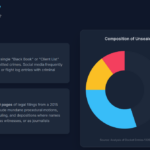
For years, the phrase “breakfast is the most important meal of the day” was tossed around as a general health guideline. But emerging evidence suggests that skipping breakfast doesn’t just affect your physical well-being—it could be hurting your mental health, too.
From mood swings and brain fog to an increased risk of depression, the implications of missing your morning meal are far-reaching. Mental health professionals and nutritionists alike are urging people to rethink their breakfast habits, especially as anxiety, burnout, and depression continue to rise across Canada and beyond.
The Science Behind Skipping Breakfast
When you wake up, your body has gone 8–12 hours without food. Breakfast “breaks the fast” and replenishes glucose—your brain’s main energy source. Without it, you risk unstable blood sugar, elevated cortisol, and sluggish cognitive function.
According to a 2020 study in Frontiers in Nutrition, people who regularly skipped breakfast were more likely to report symptoms of stress, depression, and poor cognitive performance.
“Your brain is a high-energy organ. Without fuel in the morning, it can’t regulate neurotransmitters like serotonin and dopamine effectively, which directly affects your mood.”
“Your brain is a high-energy organ,” explains Dr. Uma Naidoo, a Harvard-trained nutritional psychiatrist and author of This is Your Brain on Food. “Without fuel in the morning, it can’t regulate neurotransmitters like serotonin and dopamine effectively, which directly affects your mood.”
Mood Swings and Blood Sugar Instability
A common consequence of skipping breakfast is low blood sugar, which can trigger what many call being hangry—a blend of hunger and irritability. When your blood sugar crashes, your body produces adrenaline and cortisol to compensate, mimicking a stress response.
The Cleveland Clinic notes that these hormonal spikes not only affect energy levels but also heighten emotional sensitivity. This may explain why you feel more anxious, distracted, or emotionally reactive on days you skip breakfast.
“Skipping breakfast is essentially asking your body to run on empty, and the brain doesn’t like that,” says registered dietitian Abbey Sharp of Abbey’s Kitchen. “You’re more likely to overreact to stressors, have difficulty concentrating, and experience irritability.”
The Depression Link: A Deeper Concern
A growing body of research is uncovering strong links between skipping breakfast and increased rates of depression. A 2022 meta-analysis published in Nutrients found that individuals who skipped breakfast had a 39% higher risk of experiencing depressive symptoms compared to regular breakfast eaters.
This may be due to nutritional deficiencies that accumulate over time. Key nutrients like folate, B vitamins, magnesium, and omega-3 fatty acids—commonly found in breakfast foods such as eggs, whole grains, and fruits—are essential for mood regulation and neurological health.
“When we deprive the brain of nutrients first thing in the morning, we’re setting ourselves up for emotional instability,” says Dr. David Ludwig, professor of nutrition at the Harvard T.H. Chan School of Public Health. “Over time, this can exacerbate underlying conditions like anxiety or depression.”
Skipping Breakfast in Young People: A Red Flag
Young adults and teens are among the most likely to adopt the bad habit of skipping breakfast—and also the most vulnerable to mental health issues. A study from BMC Psychiatry revealed that adolescents who skipped breakfast at least five days per week were significantly more likely to report depressive symptoms and low academic performance.
“Students who come to class without breakfast struggle more with focus and memory,” says high school guidance counselor Melissa Tran. “We’ve seen firsthand how something as simple as a granola bar in the morning can change a student’s whole day.”
Many schools across Canada participate in the Breakfast Club of Canada program, offering free nutritious meals to help level the playing field for students who might otherwise arrive hungry.
Does Intermittent Fasting Count?
Intermittent fasting (IF) often involves skipping breakfast, especially with the popular 16:8 schedule, where eating is restricted to an 8-hour window later in the day. While some research supports the benefits of IF for weight loss and insulin sensitivity, its mental health impact is less conclusive.
According to a study in the Journal of Clinical Endocrinology & Metabolism, fasting in the morning can lead to increased cortisol and decreased mental performance, particularly in women.
“IF may work well for some, but it’s not suitable for everyone—especially people with mood disorders or a history of disordered eating,” notes Dr. Naidoo. “Skipping breakfast for the sake of fasting can be a mental health risk if not monitored properly.”
What Should a Mental Health-Friendly Breakfast Look Like?
Experts agree that quality matters more than quantity when it comes to breakfast. Sugary cereals and white bread may give a quick boost, but they can also cause a blood sugar crash shortly after. Instead, choose nutrient-rich options:
- Protein: Eggs, Greek yogurt, or nut butters
- Complex carbs: Oats, quinoa, or whole-grain toast
- Healthy fats: Avocado, flax seeds, or nuts
- Fruits and veggies: Berries, banana, or spinach
“Think of breakfast as an investment in your day,” says Sharp. “What you eat sets the tone for your mood, energy, and mental clarity.”
Real-Life Change Starts Small
Making breakfast a habit doesn’t require a major lifestyle overhaul. Something as simple as a smoothie or overnight oats can make a noticeable difference in mental clarity and emotional resilience.
Registered psychotherapist Erin Matthews says many of her clients report feeling “lighter, calmer, and more focused” after adding breakfast to their routine. “It’s a small act of self-care that reinforces stability and grounding.”
Final Thoughts: Breakfast Isn’t Just About Food
In a fast-paced world, it’s tempting to skip meals to save time—but when it comes to mental health, breakfast may be one of the most important parts of your day.
The science is clear: Skipping breakfast can worsen symptoms of anxiety and depression, increase stress hormone levels, impair focus, and limit your brain’s access to vital nutrients. For your mental health, it may be time to put breakfast back on the menu.

















